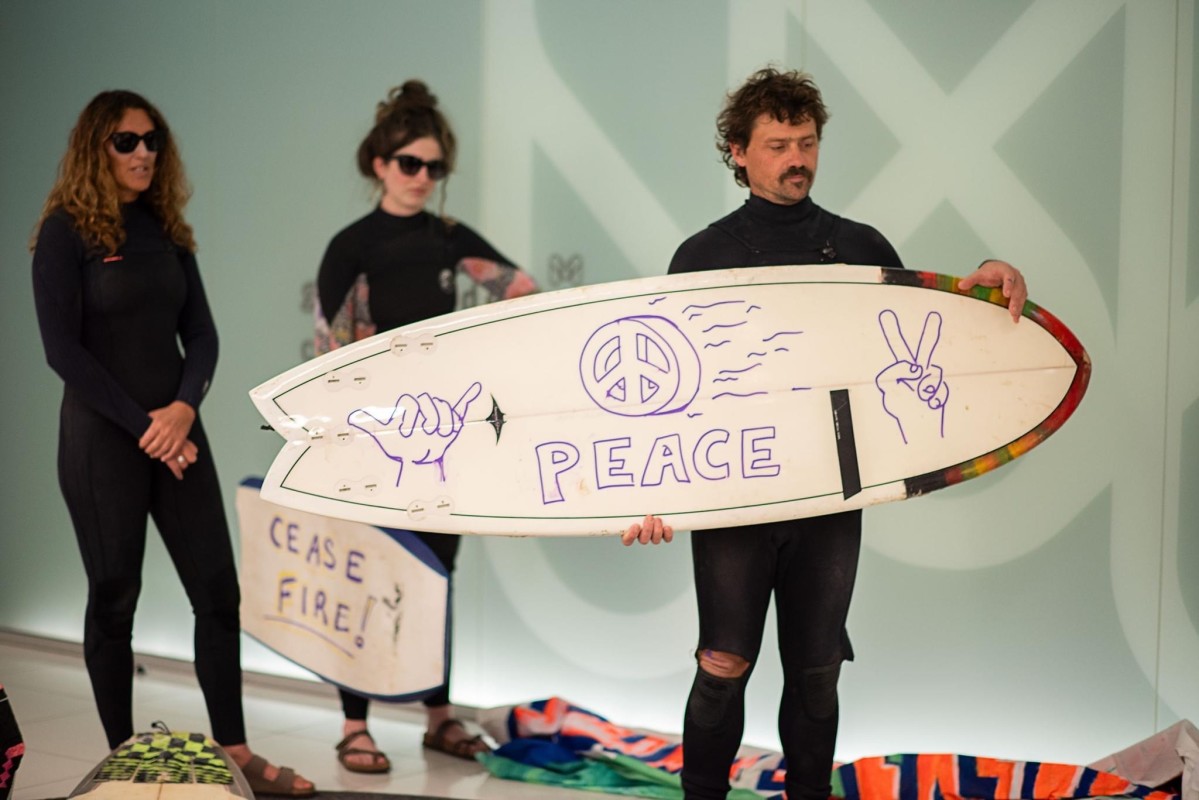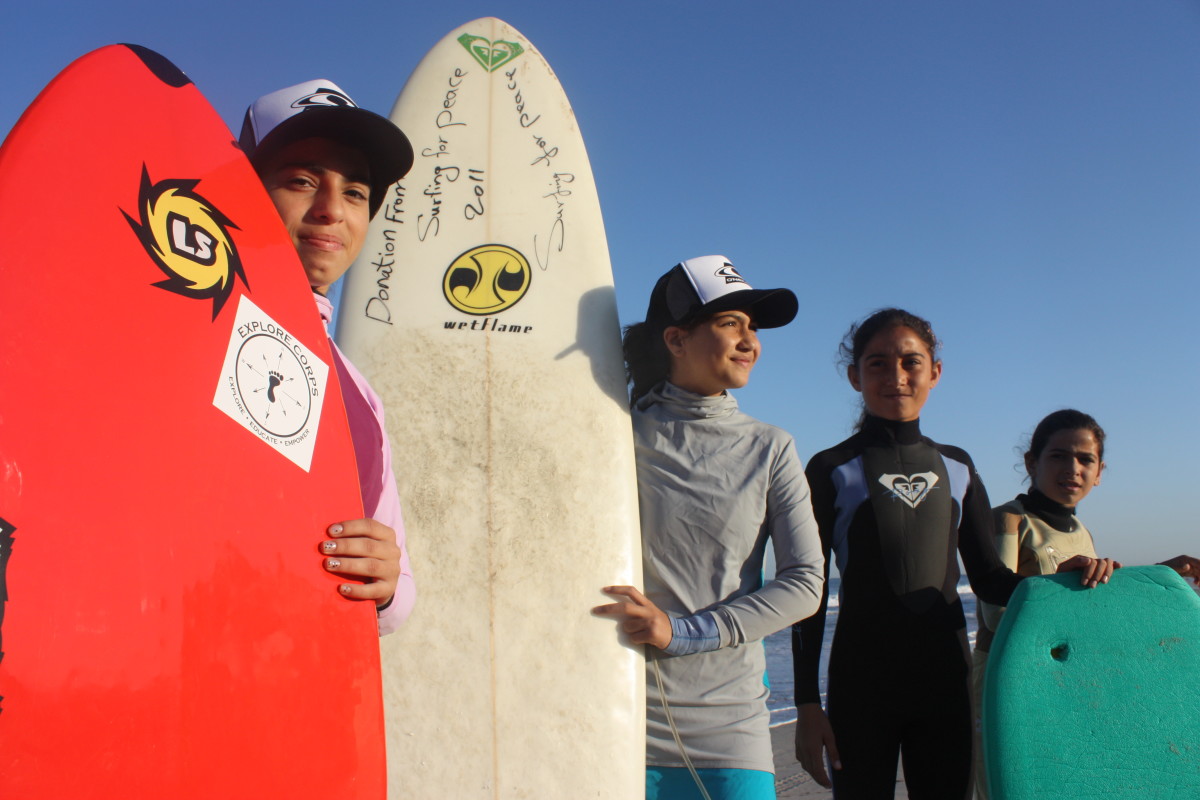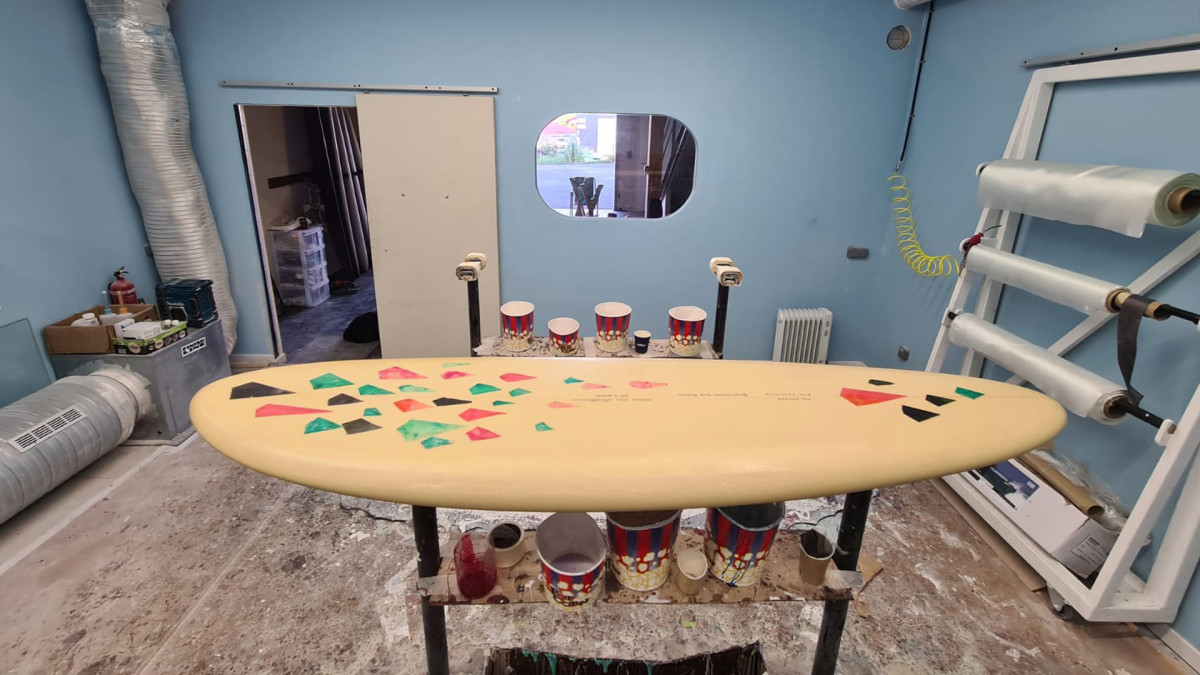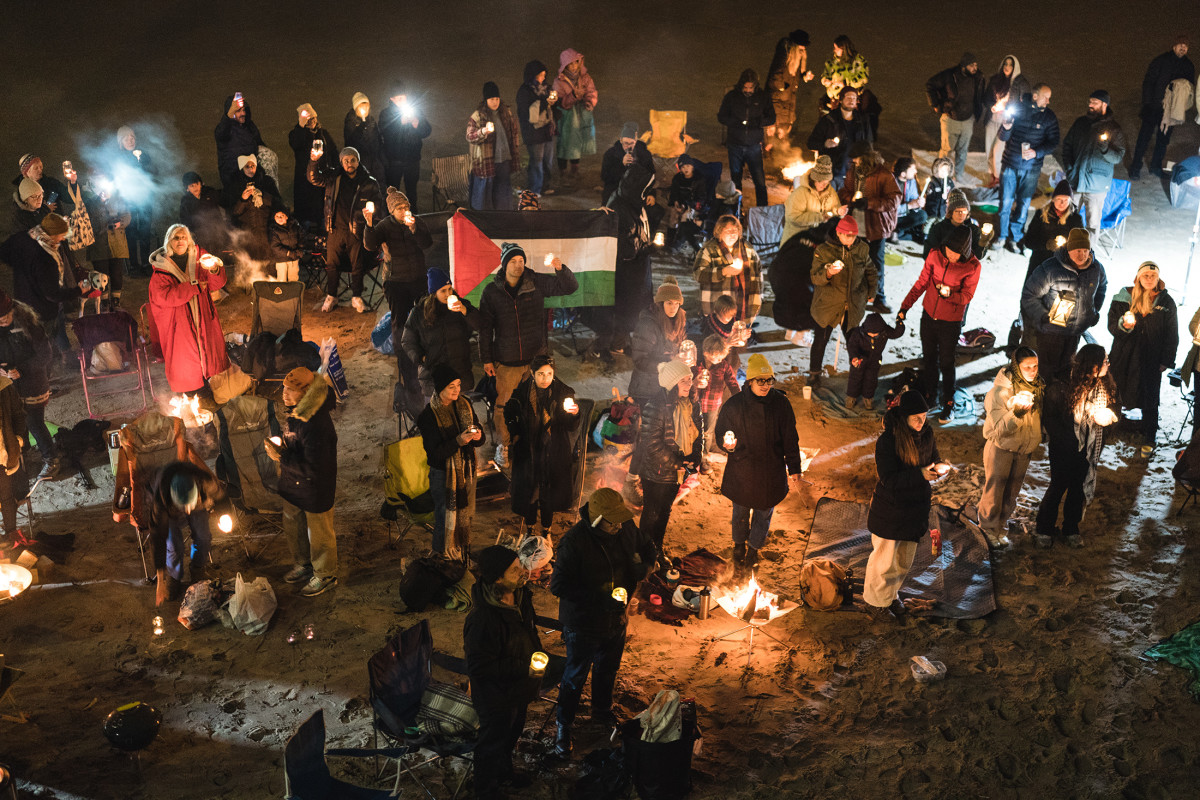
Matt Walker Photography
The Mediterranean Sea is home to many small but determined surf communities who live along its coast, making the most of the wind swells that travel short distances but become rideable as they collide with the coastlines that entrap them. The Med is also a highly politicized area, with the haves and the have nots divided by this patch of blue, changes on one side having profound impacts on those on the other. One community of surfers stands out as overcoming all odds to exist – the Palestinian surfers of Gaza.
Gaza’s coast is just over 40 kms long, and despite having lived under siege since 2007 and occupation since 1967, the coastal dwellers of Gaza have found freedom in the waves. Gaza’s first female surfer Rawand Abu Ghanem has shared updates from the ongoing violence on social media, having fled her home in Al Remal weeks after Israel’s invasion in October last year. She spent months in the south before Israel brought violence to the refugee camp in Rafah and she was forced to flee with her family again. Rawand is from a surfing family, her grandfather Yousef was a fisherman who made a surfboard using his simple tools and her father Gawad also surfs.
“When I started surfing I feel that my dream became real,” Rawand says, “because when I was seeing my father surf I felt that it’s difficult to practice, but when I held the surfboard and started surfing I felt I’m like a bird enjoying in the sea, full of comfort and freedom,” she says.

Rawand Abu Ghanem
Rawand is now in Khan Yunis, the coastal city 10 kms north of Rafah, “I would be lying if I said I was safe,” she says, “there is no place safe anywhere in the Strip from the north to the south. They are bombing everywhere, by air and by sea – the situation is very difficult and getting worse day by day.”
Rawand’s story resonated with French surfer Lee-Ann Curren, who last month teamed up with Margaux Arramon-Tunco, organizer of Queens Classic Surf Festival, an inclusive annual women’s surf festival held in Biarritz, to establish a fundraiser for Rawand. Lee-Ann is shaping a surfboard that will be raffled, with proceeds going to Rawand and her family to help them leave Gaza to safety.
Related: Gaza Surfers Caught In Crossfire Of Israel-Hamas War
“You connect through surfing, but it’s more like all humans who are over there right now going through something,” Lee-Ann says, “surfing is how you find a connection with some people and then it’s a community effort to really try to change things.”
“Everyone has some influence in their own community and then it adds up to a massive effort from everyone around the world. I think if you connect to something you really know, it’s a start – a lot of surfers have been on a surf trip, taking a plane somewhere. It’s crazy to think how close [Gaza] is to Europe and what’s going on right there.
“We can willingly disconnect from it and feel like it’s super far away, like it doesn’t concern us, but at the same time we’re able to jump on a plane and surf in Bali,” Lee-Ann says.
Lee-Ann’s fundraiser is part of a global effort by surfers to help those in Palestine, with more than 600 surfers signing a statement in solidarity in November last year. The statement reads, “As a global community of surfers, we stand in solidarity with the surfers of Gaza whose lives are under threat and who are being forcibly displaced from their access to the Mediterranean Sea.”

Curren
The support efforts are being built from various pockets of surf communities across the world. In early May this year, a group of surfers called Surfers for Ceasefire in South Australia, delivered over 100 letters to Australian Foreign Minister Penny Wong, calling for Australia to withdraw support for the violence, while dressed in wetsuits and carrying surfboards. In the North Sea surf community of Tynemouth in England, surfers gathered on the beach in late 2023 to watch the documentary Gaza Surf Club that shares the story of Gazan surfers and hold a vigil for those currently facing violence. In Ireland, big wave surfer and academic Easkey Britton has emblazoned the word “solidarity” on her surfboard and South African freesurfer and artist Ricky Basnett has painted murals in support of Palestine across Durban. Australian photographer Anrielle Hunt has organized a giveaway of surf photo print, with those who donate to Gaza asked to send her their receipt to go into the draw, and surfers in Margaret River wrote “Free Gaza” in seaweed on the beach during the Margaret River Pro.
In Southern California, a group called PaliSurferChicks has brought Palestinian women living in diaspora together to surf. “The past nine months have been filled with sadness, anger, love, and betrayal,” founder Banna Bazzarie says. “Palestinians in the diaspora surf community are well aware of the privileges they have by being able to surf and enjoy the water as millions of Palestinians are cut off from their ancestral waters.
“Every Palestinian diaspora has their own story of their grandparents or parents’ displacement by the Israeli occupation and being stripped of the chance to thrive on their own land. As descendants of Nakba survivors, being able to surf together as Palestinians is the most powerful and special feeling,” Banna says.
“Using your platform (whether big or small) to spread awareness is the bare minimum,” Banna continue. “Despite the heavy presence of silence felt in the surf community in our region, it gave me so much hope to see community members on an international scale putting in the work for change. We’ve never had this many eyes on Palestine – we still haven’t gotten used to people educating themselves and openly showing their support but we’re eternally grateful for it.”
In New York City, surfers have gathered for paddle outs for Palestine at Rockaway Beach as part of a group called Surfers in Solidarity. Caleb Winship, a surfer from NYC who has been involved in these actions says, “I am Jewish and had the honor of being invited, along with my family, to a Palestinian wedding when I was in high school. It was a shattering experience as we were overwhelmed by the brutality of Israeli apartheid that dominated every aspect of our hosts’ lives in Bethlehem.

“I love that many surfers have mobilized to take action and stand in solidarity with Palestinian liberation, but I think if more of them saw the connections to climate justice and preserving the communities we cherish in surf culture, many more would get involved. The same imperialism, as a form of capitalism, that incentives the manufacture of more bombs to kill and maim Palestinian kids in Gaza is at work in destroying our oceans and coastlines.
“I am a firm believer that you do not need a personal connection to care about Palestinian liberation. You just need eyes and a heart.” Caleb says.
Surfing has a long history of activism, with one of the most famous moments occurring in 1985 when Australian ASP rankings leader and dual World Champion Tom Carroll announced he would boycott the South African leg of the tour due to the apartheid. This move was soon followed by Lee-Ann’s dad Tom Curren, Cheyne Horan and Martin Potter and eventually almost the entire World Tour refused to compete in South Africa before the apartheid was dismantled in 1994.
Related: Gaza Surfer Unable To Locate Family Month After Fighting Breaks Out
“This is what I am most proud of from my dad’s career,” Lee-Ann explains, “Like, he’s an amazing surfer, one of the best, you know, winning World Titles – but doing that at that moment, where he had the most to lose too – when you’ve got everything to lose and you’re like ‘it’s not worth it,’ it’s pretty cool.” Lee-Ann says.
The actions from the global surf community are being felt in Gaza, with Rawand saying: “when I think of the great solidarity from the surfers around the world I am happy and it gives me hope. When I see how people are in solidarity with us and how they know me as the first girl surfer in Gaza, I feel so proud and I hope to have the power to continue to meet other surfers around the world.”
A link to enter the draw to win the surfboard Lee-Ann is shaping can be found here.

